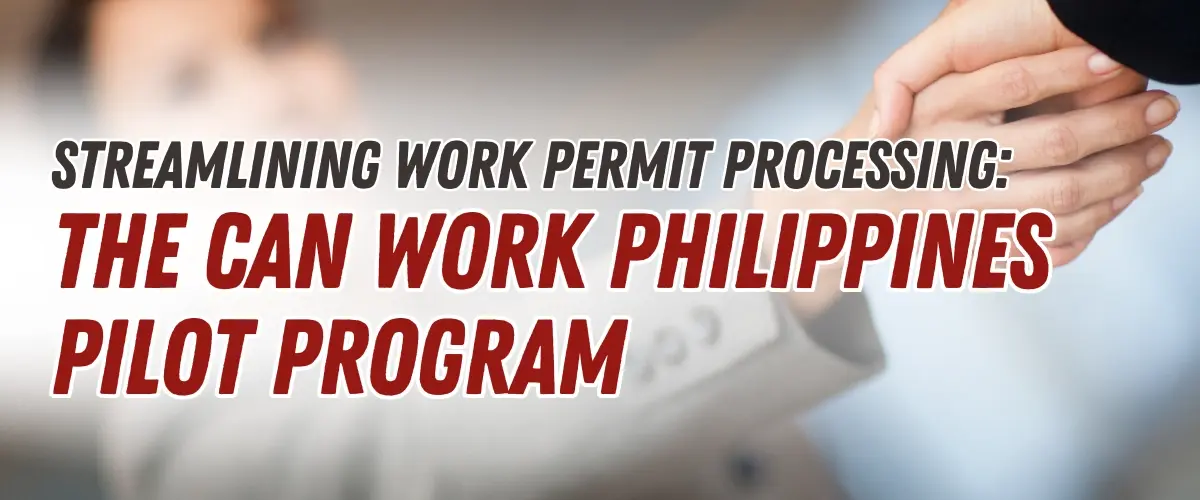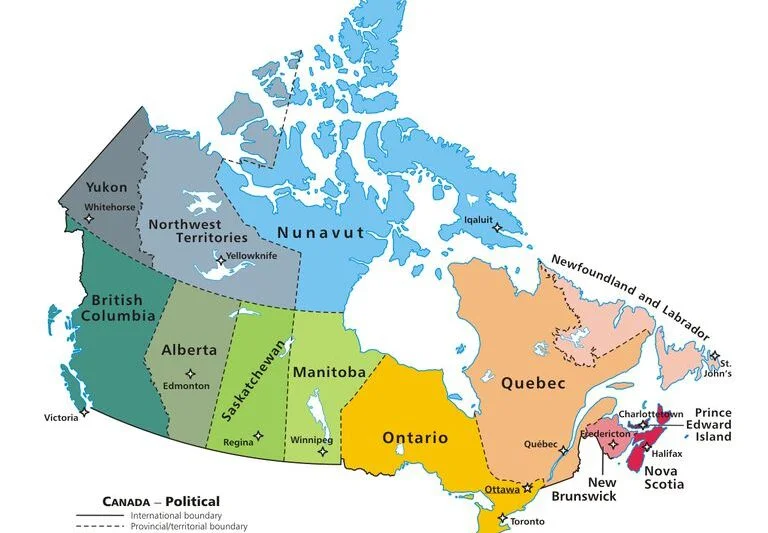
Related Post







Rural & Northern Immigration Pilot takes off
As compiled from ICCRC website:
Background
Rural and northern communities face specific economic and demographic challenges, including out-migration of youth, aging populations, and labour market shortages. This makes it difficult for them to meet their labour market needs, which in turn hinders economic growth. At the same time, most new immigrants settle in large urban centres, missing out on labour market opportunities and the quality of life found in smaller communities.
With this in mind, in March 2017, the Atlantic Immigration Pilot (AIP) was launched to help address some of these challenges and drive economic growth in communities across Atlantic Canada. Over the past two years, the employer-driven pilot has made steady progress in helping employers and local communities attract and retain immigrants with diverse skills sets to fill their workforce needs.
Building on the success of the AIP, the Rural and Northern Immigration Pilot will help to spread the benefits of immigration across Canada by providing smaller communities with tools to attract and retain skilled workers in support of community economic development.
About the communities
The Rural and Northern Immigration Pilot is a community-driven program. It’s designed to spread the benefits of economic immigration to smaller communities by creating a path to permanent residence for skilled foreign workers who want to work and live in 1 of the participating communities.
Eleven rural and northern communities have been selected as part of the new Rural and Northern Immigration Pilot to invite newcomers to make these communities their forever homes. The participating rural and northern communities will have access to a range of supports to test this new innovative, community-driven model that will help fill labour gaps.
The 11 communities named on June 14 are located in Ontario, Manitoba, Saskatchewan, Alberta, and British Columbia.
Ontario
- Thunder Bay
- Sault Ste. Marie
- Sudbury
- Timmins
- North Bay
Manitoba
- Gretna-Rhineland-Altona-Plum Coulee
- Brandon
Saskatchewan
- Moose Jaw
Alberta
- Claresholm
British Columbia
- West Kootenay
- Vernon
The participating communities were selected as a representative sample of the regions across Canada to assist in laying out the blueprint for the rest of the country.
What you can expect from a community
This pilot is community-driven, meaning the communities will:
- promote the pilot and their community to prospective candidates
- identify job opportunities in the local economy and work to match applicants to jobs
- assess prospective candidates who:
- best fit the economic needs of the community
- have a genuine employment opportunity
- have the intention of staying in the community
- recommend candidates for permanent residence to ICCRC for a final decision
- provide a welcoming community for immigrants
- connect immigrants to established members of the community and settlement services
- report on the results of the pilot
About the process
Skilled workers
As a candidate, you need to find a job with an employer in 1 of the participating communities.
If a community endorses you and you’re successful in applying for permanent residence, you’ll then move there to work and live.
The application process for eligible candidates will begin as early as fall 2019.
The details of the eligibility requirement and documents required have now been published as per the latest CIC gazette. It can be accessed here
Ministerial Instructions with respect to the Rural and Northern Community Immigration Class
Definitions
1 (1) The following definitions apply in these Instructions.
- Regulations means the Immigration and Refugee Protection Regulations. (Règlement)
- work has the same meaning as in subsection 73(2) of the Regulations. (travail)
Interpretation
(2) Unless otherwise indicated, other words and expressions used in these Instructions have the same meaning as in sections 2 and 73 of the Regulations.
Rural and northern community immigration class
2 (1) The rural and northern community immigration class is established as part of the economic class referred to in subsection 12(2) of the Immigration and Refugee Protection Actand consists of foreign nationals who have the ability to become economically established in Canada in a community and who, on the day on which their application for permanent residence as a member of that class is made, meet the requirements of sections 3 to 10.
Rural and northern community
(2) Any reference to a community is a reference to the community set out in column 2 of the schedule that is represented by the corresponding economic development organization set out in column 1.
Economic development organization
(3) Any reference to an economic development organization is a reference to the economic development organization set out in column 1 of the schedule that is designated under paragraph 14(2)(g) of the Immigration and Refugee Protection Act to make recommendations to the Minister with respect to foreign nationals under section 8, during the period set out in column 3, and that represents the corresponding community set out in column 2.
Work experience
3 (1) The applicant must have, in the three years preceding the day on which they made their application for permanent residence, accumulated at least one year of full-time work experience, or the equivalent in part-time work, over a continuous period in an occupation listed in the National Occupational Classification.
Work experience requirements
(2) The work experience must meet the following requirements:
- (a) it must include the performance of the actions described in the lead statement for the occupation as set out in the occupational descriptions of the National Occupational Classification;
- (b) it must include the performance of a substantial number of the main duties of the occupation as set out in the occupational descriptions, including all of the essential duties;
- (c) it must include only work that was done in the employ of a third party; and
- (d) if the work experience was acquired in Canada, the applicant was authorized to work in Canada under the Regulations and had temporary resident status.
International graduate exemption
(3) The work experience requirement does not apply to an applicant who obtained an eligible credential from a post-secondary program and who meets the following requirements:
- (a) the applicant was enrolled as a full-time student during the entire period of the program;
- (b) the credential was obtained within the 18 months preceding the day on which the applicant made their application for permanent residence;
- (c) in the case of a master’s or doctoral degree program that was less than two years in length, the applicant was physically present in the community during the entire period of the program; and
- (d) in the case of any post-secondary program other than those referred to in paragraph (c), the program was at least a two-year program and, during the 24 months immediately preceding the day on which the credential was obtained, the applicant was physically present in the community for at least 16 months.
Definition of eligible credential
(4) In this section, an eligible credential means a degree, diploma, certificate or trade or apprenticeship credential from a Canadian public post-secondary institution in the community, provided that the applicant was authorized to study in Canada under the Regulations and had temporary resident status throughout their period of study or training, but does not include a credential obtained
- (a) in a study or training program in which the study of English or French as a second language amounted to more than half of the credits required to complete the program;
- (b) in a study or training program in which distance learning amounted to more than half of the credits required to complete the program; or
- (c) in a study or training program for which the applicant received a scholarship or fellowship that stipulated that they return to their home country to apply the knowledge and skills gained.
Offer of employment
4 (1) The applicant must have a genuine offer of employment, as determined under subsection 200(5) of the Regulations — from an employer that carries on business in the community and is not a consulate or an employer that is referred to in paragraphs 200(3)(g.1) or (h) of the Regulations — that the applicant is likely to accept and the applicant is able and likely to perform the duties of the employment and meets the employment requirements of the occupation, as set out in the National Occupational Classification, except for certification requirements in the case of regulated occupations.
Employment requirements
(2) The offered employment must be
- (a) non-seasonal, full-time work for an indeterminate period;
- (b) located in the community;
- (c) at a wage that is above or within the range of wages for that particular occupation in the Job Bank of the Canada Employment Insurance Commission; and
- (d) in an occupation that is,
- (i) if the work experience referred to in subsection 3(1) was acquired in an occupation that is in Skill Type 0 in the National Occupational Classification, in that skill type or Skill Level A,
- (ii) if the work experience referred to in subsection 3(1) was acquired in an occupation that is in Skill Level A in the National Occupational Classification, in Skill Type 0 or Skill Level A or B,
- (iii) if the work experience referred to in subsection 3(1) was acquired in an occupation that is in Skill Level B in the National Occupational Classification, in Skill Level A, B or C,
- (iv) if the work experience referred to in subsection 3(1) was acquired in an occupation that is in Skill Level C in the National Occupational Classification, in Skill Level B or C, or
- (v) if the work experience referred to in subsection 3(1) was acquired in an occupation that is in Skill Level D in the National Occupational Classification, the same occupation as the one in which the work experience was acquired.
Language proficiency
5 The applicant must demonstrate, using the results of a language test — approved under subsection 74(3) of the Regulations and provided by an institution or organization designated under that subsection — that are less than two years old, that they have, for each of the four language skill areas under either the Canadian Language Benchmarks or the Niveaux de compétence linguistique canadiens, met or exceeded the applicable language proficiency threshold, among the following, for the National Occupational Classification of the occupation for which they have an offer of employment:
- (a) for occupations in Skill Type 0 or Skill Level A, benchmark 6;
- (b) for occupations in Skill Level B, benchmark 5; or
- (c) for occupations in Skill Levels C or D, benchmark 4.
Education
6 The applicant must have obtained
- (a) a Canadian educational credential; or
- (b) a foreign diploma, certificate or credential, along with an equivalency assessment that is less than five years old.
Intention to reside
7 The applicant must intend to reside in the community or within a reasonable commuting distance of the community.
Recommendation
8 (1) The applicant must have a recommendation from a designated economic development organization referred to in column 1 of the schedule.
Considerations
(2) The recommendation must be based on criteria that are established by the economic development organization and that reflect the following considerations:
- (a) whether the applicant intends to reside in the community, or within a reasonable commuting distance of the community;
- (b) whether the applicant has a genuine offer of employment in an occupation or an industry sector that is in demand in the community;
- (c) whether the applicant has the required skill set for that occupation;
- (d) whether the applicant’s skill set is required in the community; and
- (e) whether the applicant has a connection to the community.
Period of validity
(3) The recommendation is valid for a period of six months beginning on the day on which it is issued, unless it is revoked by the economic development organization or the economic development organization is removed from the schedule, in which case the recommendation is invalid beginning on the day of revocation or removal.
Necessary funds
9 The applicant must, if they do not already occupy a position of employment in Canada, have in the form of transferable and available funds — unencumbered by debts or other obligations — an amount equal to one half of the amount identified, in the most recent edition of the publication concerning low-income cut-offs that is published annually by Statistics Canada under the Statistics Act, for rural areas outside census metropolitan areas or census agglomerations as the minimum amount of before-tax, annual income necessary for the applicant to support themselves and their family members, whether those family members are accompanying them or not.
Application from within Canada
10 If a foreign national is in Canada at the time of their permanent resident visa application, they must have temporary resident status.
New offer of employment
11 An applicant may obtain a new genuine offer of employment only if, after they submit their application for permanent residence,
- (a) the employer from which the applicant received their existing offer of employment becomes an employer referred to in paragraph 200(3)(h) of the Regulations; or
- (b) the applicant is already working under a work permit referred to in section 200 of the Regulations and, for the reasons referred to in subsection 207.1(1) of the Regulations, they are issued a new work permit.
Visa issuance
12 In order for a permanent resident visa to be issued
- (a) the genuine offer of employment requirements of section 4 must be met or the applicant must be occupying a position of employment that meets the requirements of that section; and
- (b) the recommendation referred to in section 8 must
- (i) not have been revoked by the issuing economic development organization, and
- (ii) have been made within the period set out in column 3 of the schedule for the corresponding economic development organization set out in column 1, except in the case of an economic development organization that is removed from the schedule, in which case the period ends on the day of removal.
Permanent resident visa
13 For the purposes of subsection 14.1(5) of the Immigration and Refugee Protection Act, subsections 70(1), (2), (4) and (5) of the Regulations apply to permanent resident visa applications made by an applicant.
Not agent of Her Majesty
14 Economic development organizations are not agents of Her Majesty or Crown corporations, as defined in section 2 of the Financial Administration Act, and their officers and employees are not part of the federal public administration.
Effective period
15 These Instructions have effect for a period of five years beginning on September 1, 2019, but if they are given after that day, the period begins on the day on which they are given.
